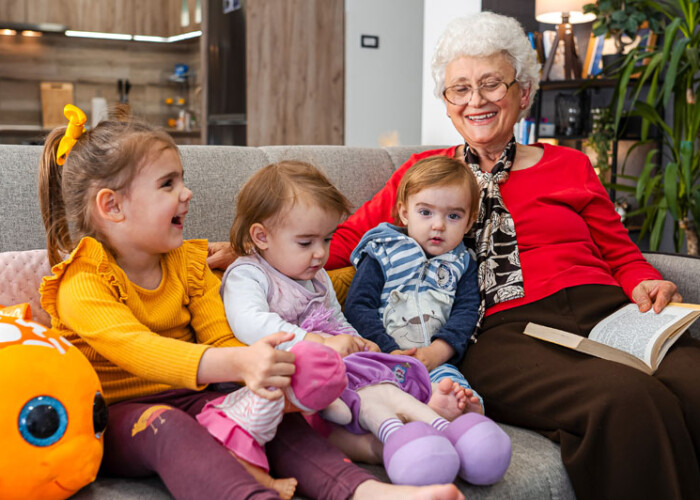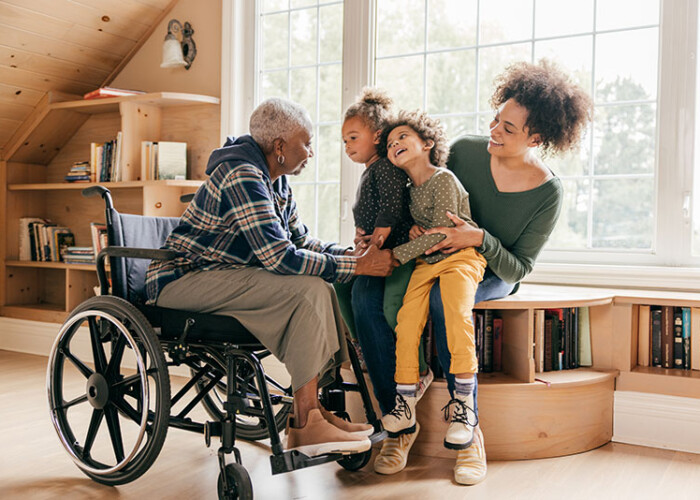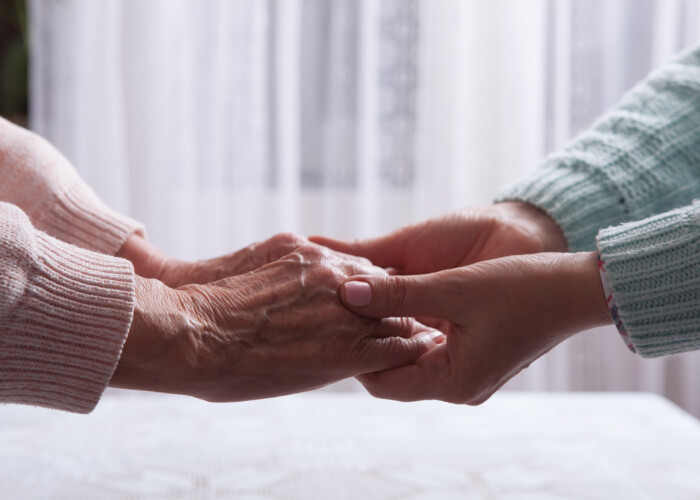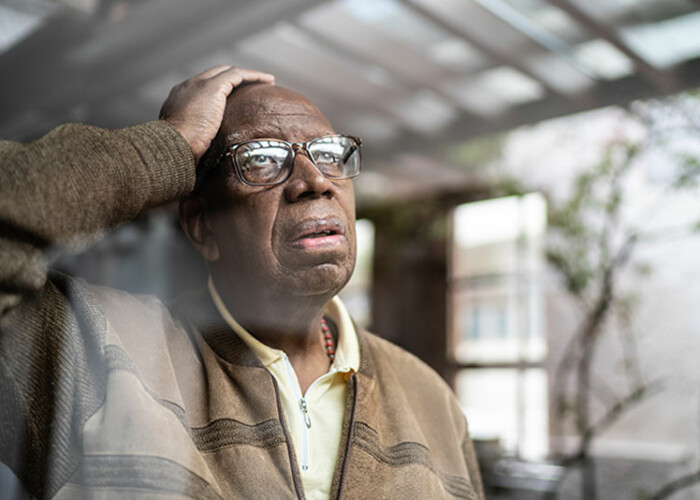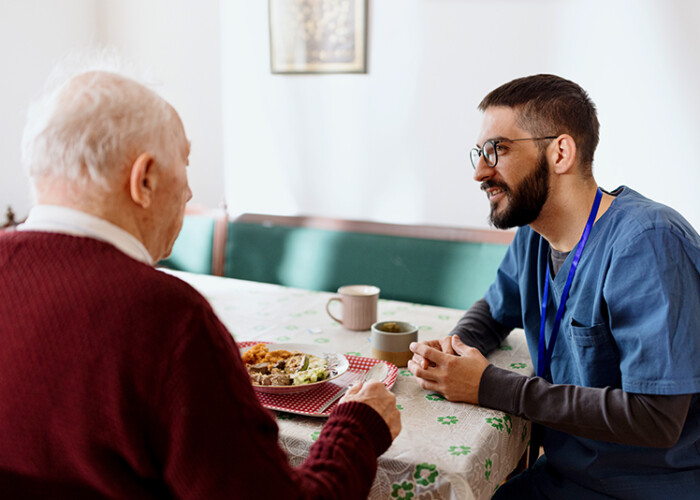Senior Health
The Life-Changing Benefits of Purposeful Living for Seniors
Purposeful living for seniors opens new doors to health, happiness, and fulfillment each day.
What exactly is it that gets you out of bed every day? If you’re part of the sandwich generation, providing care for both older and younger loved ones, your list is probably quite extensive! As the nest empties, however, it becomes important to redefine our identity and learn new ways to bring meaning to every day.
How to Overcome Family Denial of Home Care Needs
If you’re encountering family denial of home care needs for an older loved one, these tips will help everyone come to a place of agreement.
When you begin to notice the red flags that care in the home is required for someone you love, it’s very common for that individual to resist the idea. After all, acknowledging the need for assistance is not easy, especially for somebody who prizes their privacy and independence. Yet what do you do when you encounter family denial of home care needs for an older loved one? When you’ve reached an impasse within your family in regards to the need for senior care, there is one potential culprit to consider: denial.
Why Would a Family Member Deny the Need for Care in the Home?
Denial is a coping mechanism employed to protect against … Read More »
The Emotional Journey of End-of-Life Eating Changes
When a loved one is approaching the end of life, every moment becomes even more meaningful, but it can also be a time of great emotional difficulty. One of the changes you may notice is their decreasing interest in food and drink, which can be especially distressing. Watching someone you care about stop eating can leave you feeling worried, helpless, and unsure of how to help. However, understanding why these end-of-life eating changes happen and focusing on providing comfort rather than nourishment can ease this challenging time for both you and the person you love. The goal shifts from ensuring they eat to making sure they are comfortable and at peace.
Why Eating Changes Occur at the End of Life
As a person’s body prepares for the end of life, their need for food and drink diminishes. Metabolism slows, … Read More »
The Importance of a Daily Routine for Someone With Dementia
Have you ever woken up from a dream feeling completely disoriented? The dream seemed so real, and it takes a moment to regain your bearings. For someone with dementia, this disorientation is a part of everyday life. One highly effective way to help is to provide as much stability as possible, and one of the best ways to accomplish this is by sticking to a daily routine for someone with dementia.
How Can a Routine Help Someone With Dementia?
Short-term memory loss makes it challenging for someone with Alzheimer’s to learn and remember new things. A familiar routine helps build self-confidence, reinforce a sense of independence, and reduce anxiety.
To establish the most comfortable routine for a loved one with Alzheimer’s disease, try the following:
Follow their lead. Retain any routines the person already has built: a morning shower before … Read More »
Hidden Disabilities in Seniors: How to Recognize and Combat Ableism
What’s your first thought when you see an individual in a wheelchair? Do you view that person as less-than, someone in need of being fixed? Do you assume they need special treatment, as though a physical disability impacts intellect as well? How does your thinking shift to see someone standing upright, without the need for a wheelchair; would you think they were better-abled than the wheelchair-bound older adult?
These are tough questions that call for honest answers if we’re to understand and respond accordingly to hidden disabilities in seniors and ableism.
What Is Ableism?
Ableism is identified as “the discrimination of and social prejudice against people with disabilities based on the belief that typical abilities are superior.” It leads to harmful misconceptions and stereotypes.
The Two Sides of the Disability Coin
Individuals with visible disabilities encounter ableism in many … Read More »
Tips to Overcome the Challenges of Medical Tests for Older Adults
Ease the process of medical tests for older adults with these tips.
There’s often nothing “routine” about a routine checkup. You may arrive to your appointment perfectly fine, but leave with orders for blood work along with other medical tests a doctor recommends to keep you as healthy as possible. These tests may be nothing more than a minor inconvenience for you, but medical tests for older adults could be challenging for many reasons: transportation problems, mobility issues, thinner skin, fragile veins, cognitive difficulties, and much more.
Supporting Mental Health in Aging Parents and Breaking the Stigma
Supporting mental health in aging parents starts with recognizing the signs and addressing the stigma around mental health care.
Mental health is a critical aspect of well-being throughout life, and it becomes even more significant as our parents grow older. For many older adults, however, talking about mental health can be especially difficult due to ingrained stigmas and the values they were raised with. It’s important to understand why older loved ones might be hesitant to discuss mental health and to recognize the signs that they might be struggling. This knowledge can guide you in supporting mental health in aging parents to ensure they receive the support and care they need.
Feeling Bored as a Caregiver? Try These Ideas!
Identifying the signs of substance misuse in older adults is the first step towards getting them help.
It’s not unusual for Dad to enjoy a glass or two of wine with dinner, but lately, you’ve noticed that he’s gravitating towards stronger drinks more frequently, and earlier in the day. He might say it helps with sleep or eases the aches of arthritis, but is there more to be concerned about?
Getting to the Root of Restlessness in Dementia
Uncover the reason behind restlessness in dementia in someone you love by answering these key questions.
Pacing. Fidgeting. Wandering. When you begin to notice these signs in someone you love with dementia, it’s time to take action before they escalate to agitation, aggression, or leaving the home. But figuring out why the person is feeling restless in dementia is sometimes half the battle.
Noticing Changes in a Senior’s Eating Behaviors? Here’s Why.
There are a number of reasons that could be causing changes in a senior’s eating behaviors.
Following the indulgence of the holiday season, many of us decide to cut back on consumption of calories. But when an older adult does not want to eat altogether, or is making unbalanced or unhealthy dietary choices, it’s important to look for the reason behind changes in a senior’s eating behaviors. This is a first and crucial step in promoting healthier eating habits.


